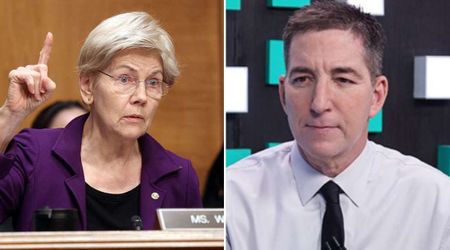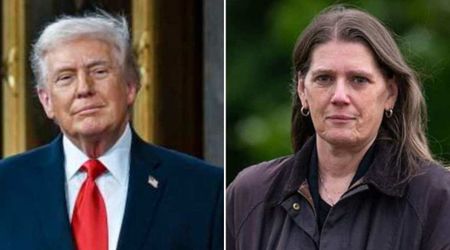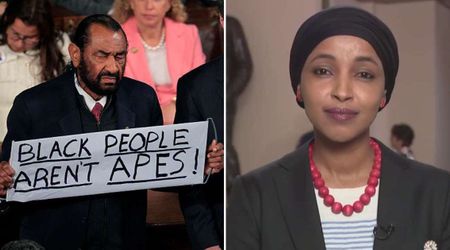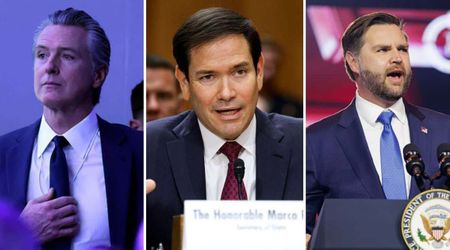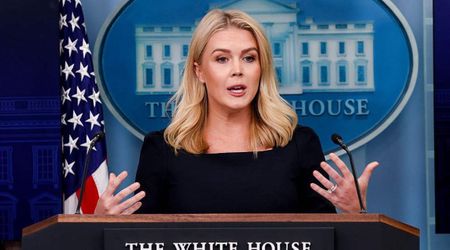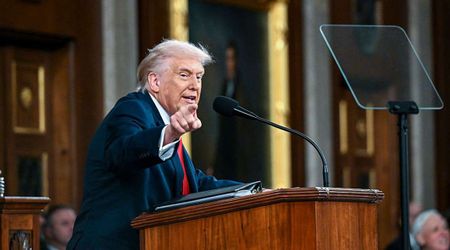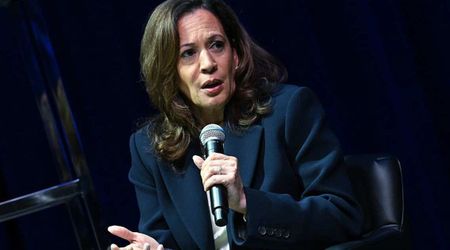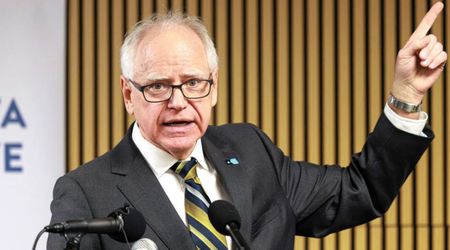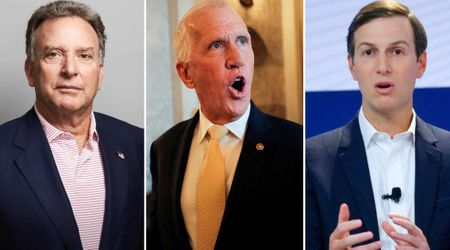Donald Trump dubbed 'economically illiterate' by experts over flawed claims about tariffs

WILKES-BARRE, PENNSYLVANIA: Former President Donald Trump faced considerable backlash after making a controversial statement about tariffs during a campaign rally in Wilkes-Barre, Pennsylvania on Saturday, August 17.
The GOP presidential nominee claimed that imposing tariffs on foreign-made products, particularly from countries like China, does not impact the nation negatively, leading critics to label his economic understanding as flawed.

Donald Trump’s tariff proposal and subsequent backlash
In his speech, Donald Trump pledged to impose tariffs on foreign-made goods to bring jobs back to the US and generate "billions and billions of dollars" for the economy. He insisted that tariffs are a tax on foreign countries rather than on American consumers, directly contradicting the widely accepted economic understanding of tariffs.
"A tariff is a tax on a foreign country, that’s the way it is whether you like it or not. A lot of people like to say, 'Oh, it’s a tax on us.' No, no, no," told Trump to the rally crowd, adding, "It’s a tax on a country that’s ripping us off and stealing our jobs. And it’s a tax that doesn’t affect our country."
Trump: A tariff is a tax on a foreign country. A lot of people like to say it’s a tax on us. No… It’s is a tax that doesn’t affect our country. pic.twitter.com/NNyNthZbKg
— Acyn (@Acyn) August 17, 2024
Many critics took to social media to challenge the MAGA strongman's understanding of tariffs.
Mark Cuban, a billionaire entrepreneur and frequent Trump critic, responded by questioning the practicality of Trump's claim, particularly for importers of essential goods like food and agricultural products.
Taking to X (formerly Twitter), he wrote, "Any importers want to explain how they deal with tariffs on say food or agricultural products?" highlighting the direct impact tariffs have on American businesses and consumers.
Any importers want to explain how they deal with tariffs on say food or agricultural products ? https://t.co/z50uWZEogr
— Mark Cuban (@mcuban) August 17, 2024
Robert Shrum, director of the University of Southern California's Center for the Political Future and a former speechwriter for the late Sen Ted Kennedy, did not mince words in his critique, describing Trump's remarks as
"simply economically illiterate."
He added, "No wonder he apparently had a mediocre record at Wharton."
This is simply economically illiterate. No wonder he apparently had a mediocre record at Wharton. https://t.co/EaKMPbdY0S
— Robert Shrum (@BobShrum) August 17, 2024
Several others piled on to the criticism on X.
One wrote, "I'm sure the farmers who he had to bail out because of the tariffs he implemented would like a word," and another said, "I believe a person running for president ought to understand tariffs. I also believe they shouldn't have criminal convictions but what do I know?"
"I guess Trump must have paid someone else to attend Econ 101 at Wharton because this is really basic stuff and he's dead wrong," joked a person, with an individual quipping, "Felon Trump still doesn’t know how things work. And he never will."
"He is so dumb. It’s so disheartening seeing how many Americans support this type of person," expressed another person.
I'm sure the farmers who he had to bail out because of the tarrifs he implemented would like a word.
— ❤️🔥 A To The Z ❤️🔥 (@A_tothe_Z_Amber) August 17, 2024
I believe a person running for president ought to understand tariffs.
— Rick ☆ ™ (@RickChapterTwo) August 18, 2024
I also believe they shouldn't have criminal convictions but what do I know?
I guess Trump must have paid someone else to attend Econ 101 at Wharton, because this is really basic stuff and he's dead wrong.
— DumpTrump 🇺🇸 🇺🇦 (@DumpDrumpf20) August 17, 2024
Felon Trump still doesn’t know how things work. And he never will.
— 🌻Justice⚖Now 🌟🇺🇸 (@ChrisJustice01) August 17, 2024
He is so dumb. It’s so disheartening seeing how many Americans support this type of person.
— Ryan Shead (@RyanShead) August 18, 2024
Experts weigh in on how Donald Trump's tariffs plan might affect Americans
Donald Trump's proposal about tariffs has also been scrutinized by economists who argue that such policies would likely result in higher costs for American consumers and harm businesses.
Barbara Spencer, a former professor of strategy and business at the University of British Columbia, criticized his plan of implementing 10 to 20 percent tariffs on certain countries.
"Even if this tariff policy will be applied only to countries that Trump views as political foes, it is remarkable that a person as educated as Trump would see all imports from those countries as ripping off the US," told Spencer to Newsweek.
She went on, "A significant proportion of imports into the US are intermediate goods that reduce the costs of US firms allowing them to make profits in competition with foreign rivals both at home and abroad."
"A tariff would raise the costs and prices of these firms, hurting both the firms and US consumers. Firms in the US that compete directly with imports can enjoy increased profits from an import tariff, but this would typically involve the firm raising its prices at the expense of US consumers," noted the Spencer.
Matilde Bombardini, an associate professor of business and public policy at the University of California, Berkeley, also warned that Trump’s proposed tariffs would likely lead to increased prices for US consumers and companies.
She mentioned, "What we have seen is that tariffs on China have led to several producers relocating to Vietnam and Thailand. So, we can expect that further tariffs would impact prices paid by consumers and firms, with unclear benefits for US workers."
Abigail Cooke, a trade policy expert at the University at Buffalo, echoed these concerns, noting that tariffs not only raise prices for American consumers but also hurt American producers who rely on imported inputs.
She began, "There are two things missing from the overly simplified idea that placing tariffs on other countries' products hurts those foreign producers and helps American producers."
"First, it raises prices for American consumers. We've just gone through a period of relatively elevated inflation rates that have made American consumers really upset. Tariffs contribute to higher prices," explained Cooke.
She added, "Second, American producers rely heavily on imported inputs. There are virtually no American-only-made supply chains. So tariffs also hurt many American producers. Tariffs, especially for a relatively wealthy country like the US, are a blunt economic tool with many of the costs also borne at home in the US."
This article contains remarks made on the Internet by individual people and organizations. MEAWW cannot confirm them independently and does not support claims or opinions being made online.

